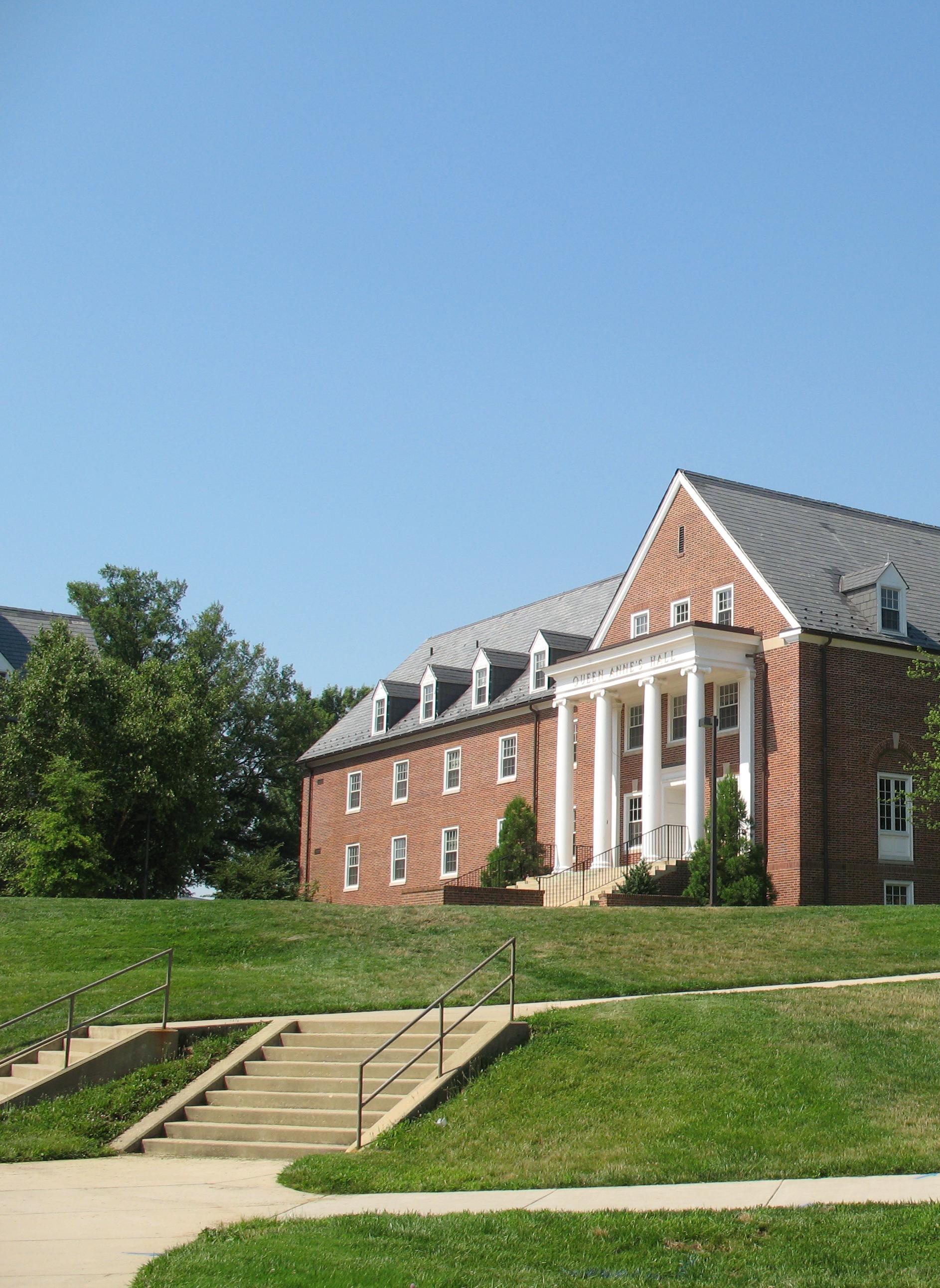
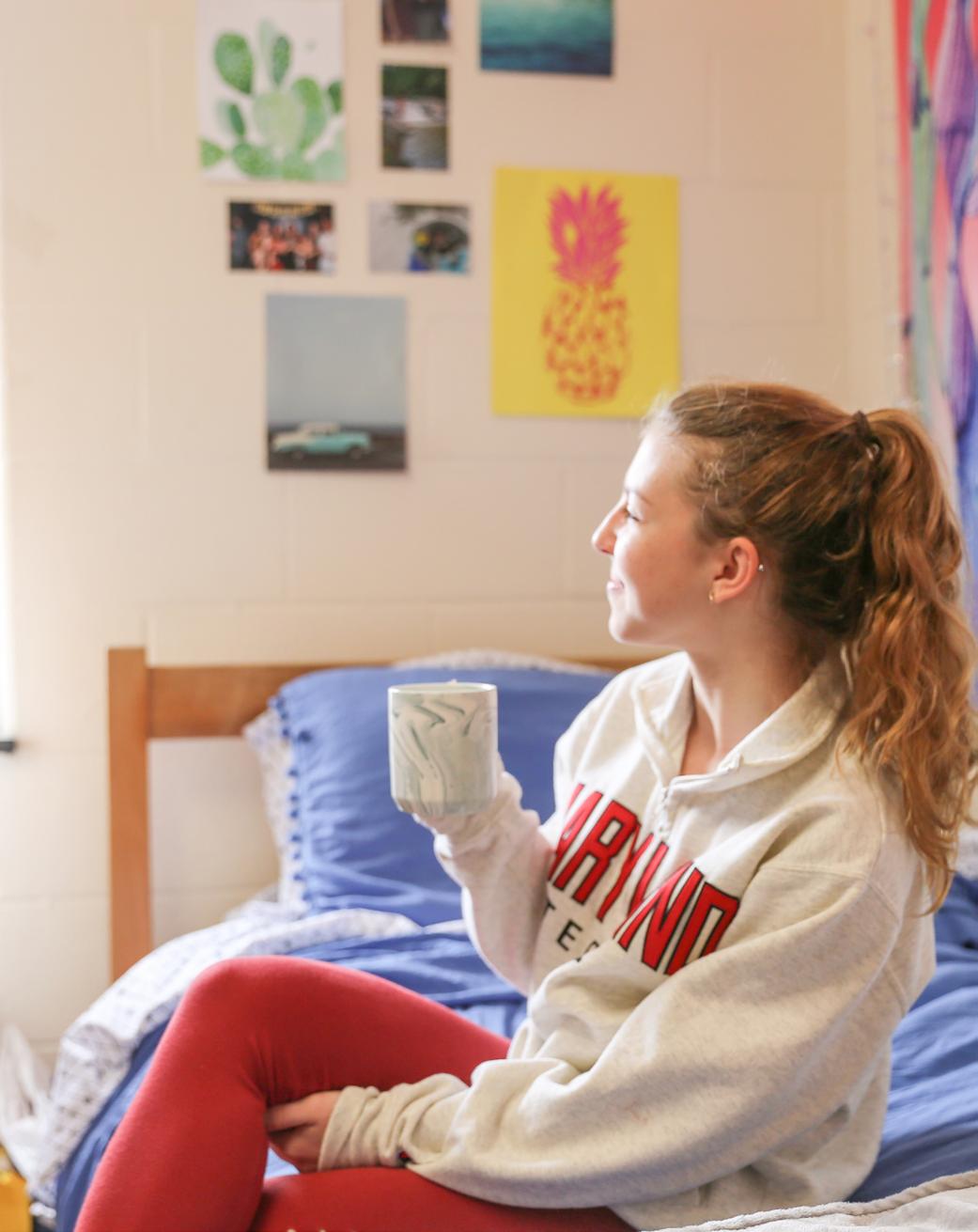
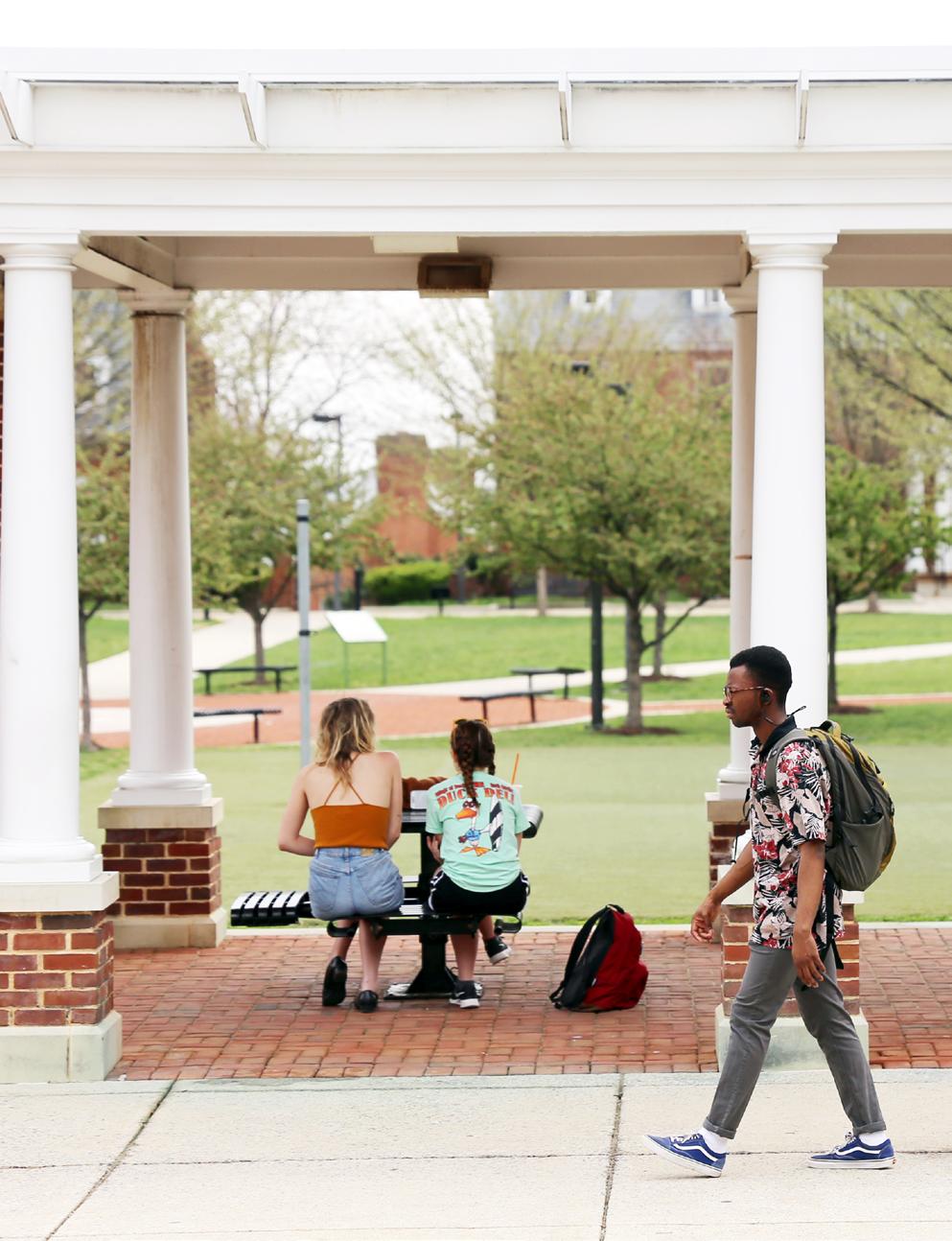
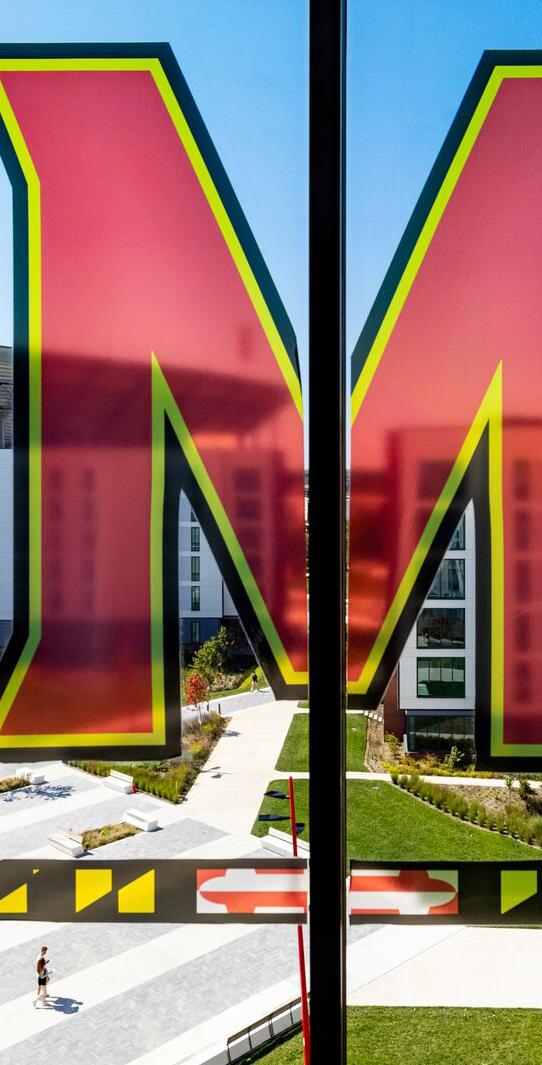







Dear Residence Hall Terps,
Welcome to the residence hall community at the University of Maryland! Our campus is an amazing and wonderful place to engage, learn, and discover. I am excited for you to be an active part of the Maryland Residential Experience, and I encourage you to take full advantage of all that living on campus has to offer.
Living in the residence halls, you join a diverse group of talented fellow Terps from across the country and around the world. You will learn from and teach each other. I encourage you to extend yourself, get involved, and embrace new opportunities. Say hello, introduce yourself to new people, and engage actively in your residence hall community. The rewards will be great and will very likely lead to lasting memories and lifelong friendships.
Our Resident Life staff cares deeply about your success, and we’re here for you! We are committed to your growth and learning, and we create safe, inclusive residential environments where all residents can thrive. We are firmly committed to your on-campus experience, and we work hard every day to live our shared values. I invite you to visit the Resident Life website to learn more about Resident Life’s Vision, Mission, and Values and all you can expect while living on campus!
Our staff are also a great resource for addressing problems or concerns you may face during your time on campus. Remember, ask for help when you need it, and give help when you can.
We are eager for your arrival this fall and look forward to welcoming you to your new residence hall! Go Terps!
With Terrapin Pride,
Dennis Passarella-George (he/him) Director of Resident Life Division of Student Affairs
Community of Care
We care about our residents, staff, and campus community and provide support that is compassionate and empathetic to each person's experience.
Discovery of Self and Others
We value and provide opportunities for community members to engage and learn more about ourselves and each other.
Inclusive and Equitable Communities
We value the diversity of our communities and create inclusive environments that are welcoming to everyone, particularly those from historically marginalized identities. We are committed to fairness and equity in treatment, rights, and access to resources.
Learning and Development
We value developmental experiences and foster academically supportive communities where residents can discover, learn, and grow.
Safety
We value safe and secure environments that involve the cooperation of all community members.
Student-Centered
Students are at the center of our work. We focus on student needs and concerns, support and well-being, and the impact of their residential experience.
WELCOME 2025 AUGUST 27–SEPTEMBER 1
From the minute you move in, you will have the opportunity to be involved and meet new people! Participate in our annual Fall Welcome program. This six-day series of events is your springboard to learn more about the University of Maryland and to meet new friends before classes begin.
Events and activities include:
• Residence Hall Meet & Greets
• Welcome to the B1G Show & Class of 2029 M Photo
• Terp Bingo with the Residence Hall Association (RHA)
• Free Fest resource fair with tons of free giveaways and more!
So many fun events to orient you to the University of Maryland and begin creating your Terp memories!
The Fall Welcome program is free! No registration or RSVP is required. The Anytime Dining Meal Plan will begin at 4:00 p.m. on the first day of move-in for all students. Visit our Fall Welcome website to learn more and to see a full schedule of events.
So much happening within steps of where you live!

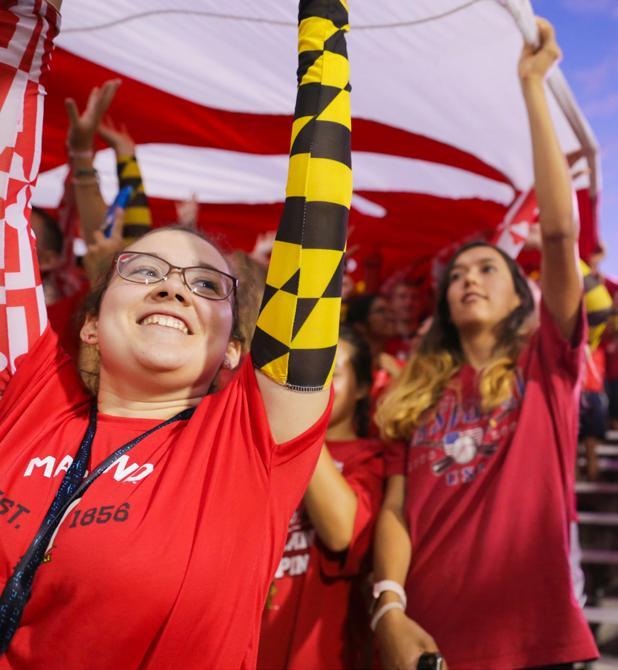
First-year students are assigned into available rooms after returning students select their assignments. Assignments are typically in traditional hall doubles, triples and quads. Rooms are assigned in the order students’ housing agreements were received, honoring students’ preferences where possible.
Students participating in a Living-Learning Program are housed with their program.
New students can request roommates through the Resident Life Housing Portal as part of the Roommate Finder Process. The Roommate Finder Process is available on June 16 at 9 a.m. through June 25 at 11:59 p.m. Roommate requests must be mutual by both students. Please do not make plans or purchase supplies with your requested roommate prior to receiving your assignment. We do our best to honor all roommate requests, yet it is important to note that sometimes there are space limitations that prevent us from executing all requests.
Students who would like to request accommodations may do so through Accessibility and Disability Services. The deadline to request disability and medical accommodations is May 30. More information is available on the Accessibility and Disability Housing Accomodations website
Building and room assignments are made and posted to students’ Resident Life Housing Portal on July 17 (early January for Spring Semester). Once room assignments are posted, you will know the hall and room to which you have been assigned and when and where to check-in. You will also know your roommate’s name, email address, and cell phone number. No room changes are made until the room reassignment period launches in mid-September.
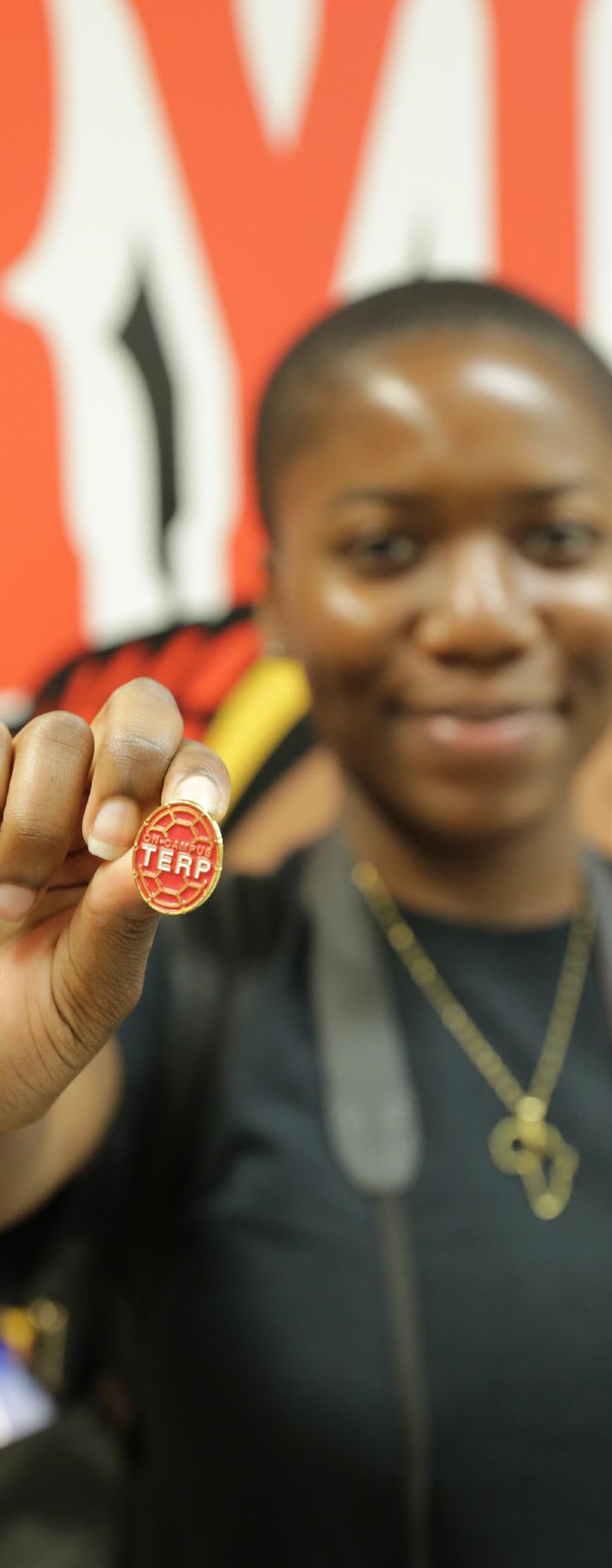
9,658 STUDENTS LIVE IN 39 RESIDENCE HALLS
82% live in traditional style halls with furnished double, triple, or quad rooms and communal bathrooms
8% live in fully-equipped apartments that are air conditioned, furnished, with kitchens (mostly second, third, and fourth year residents; no dining plan required)
10% live in suites, similar to apartments, but without kitchens (mostly second, third, and fourth year residents; dining plan required)
8% are triples or quads, to be shared by three or four students
11% are singles
81% are doubles to be shared with a roommate
Residence hall living is filled with opportunities to meet new friends, be actively engaged in the community, and to live within steps of where you need to be on campus. Your residence hall room is your “home away from home.”
We hope you feel welcomed and at home while you are living here. To make your room safe, as well as comfortable, we have some guidelines within the restrictions of University policies.
Before you and your roommate(s) move in, you should review the guidelines, decide what to bring, and discuss your needs and the cost involved in personalizing your room. Formulating a plan and consulting with your roommate(s) about their ideas and preferences for how to make your room a comfortable and home-like place for you is a good place to start. With this in mind, please read the following guidelines for personalizing your room.
Residence hall furniture
All University of Maryland rooms in residence halls are furnished with:
• Regular Twin size bed and mattress (36” x 75” regular or extra-long sheets fit when using a mattress pad). Pyon-Chen and JohnsonWhittle Halls have extra-long beds.
• Dresser
• Desk and shelf, desk chair
• Window blinds
• Closet space
• Overhead light
• Smoke alarm
• Fire suppression sprinkler system - please do not tamper with or hang items from the sprinkler
Upon arrival, your furniture will be set in the recommended fashion to optimize space and airflow for the Heating and Air Conditioning Unit (HVAC) system. It is important to not block the HVAC unit to allow it to function properly. Additionally, some rooms have portable dehumidifiers attached to the fan coil unit with a 2’ drain line to allow the unit to drain automatically, yet limit mobility. The dehumidifier will automatically pump any excess moisture from the space into existing fan coil condensate drains. These units should not be moved or blocked as they help to control humidity levels in the room.
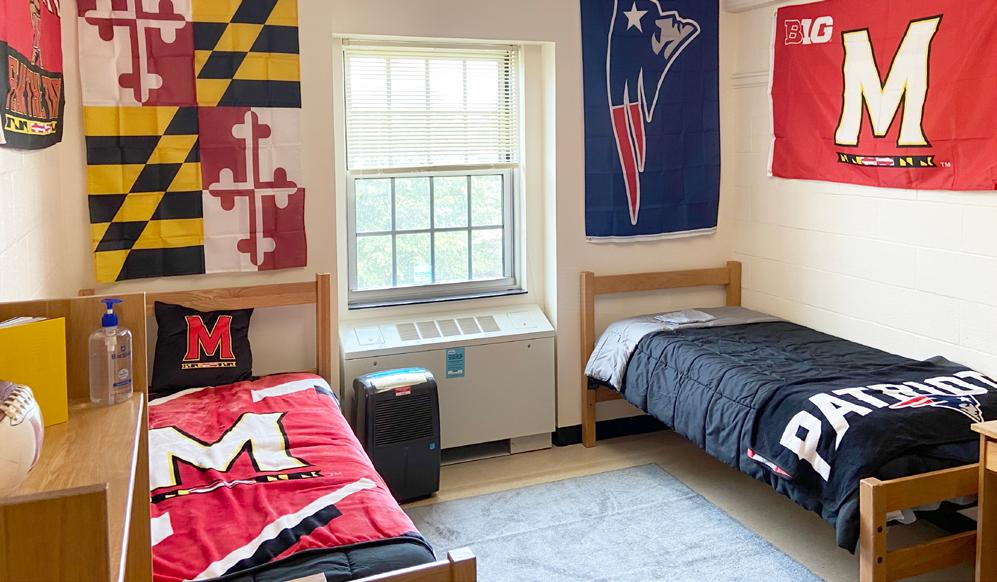
If you and your roommates decide to rearrange the furniture, it is important to keep a minimum of 12” clearance in front of the HVAC units as well as the dehumidifier, if there is one in your room. We recommend you keep the room set in the fashion you find it, if possible.
Note: No University furnishings may be removed from rooms or apartments. Storage of University furniture outside of an assigned residence area is not allowed.
You may hang posters, pictures, etc. on the walls. To prevent wall damage, we recommend first, affixing/ using “blue painters tape,” which is readily available at home improvement stores. Removable “putty” is another option. Take particular care if using LED lights, as they often damage paint when removed. Residents are responsible for damage to room (walls, ceilings, doors, etc.) and University furnishings.
Report maintenance issues for your residence hall room or building by submitting service requests through the Facilities Service Central portal. For emergencies, call the University’s Residential Facilities 24-hour service center at 301-314-9675.
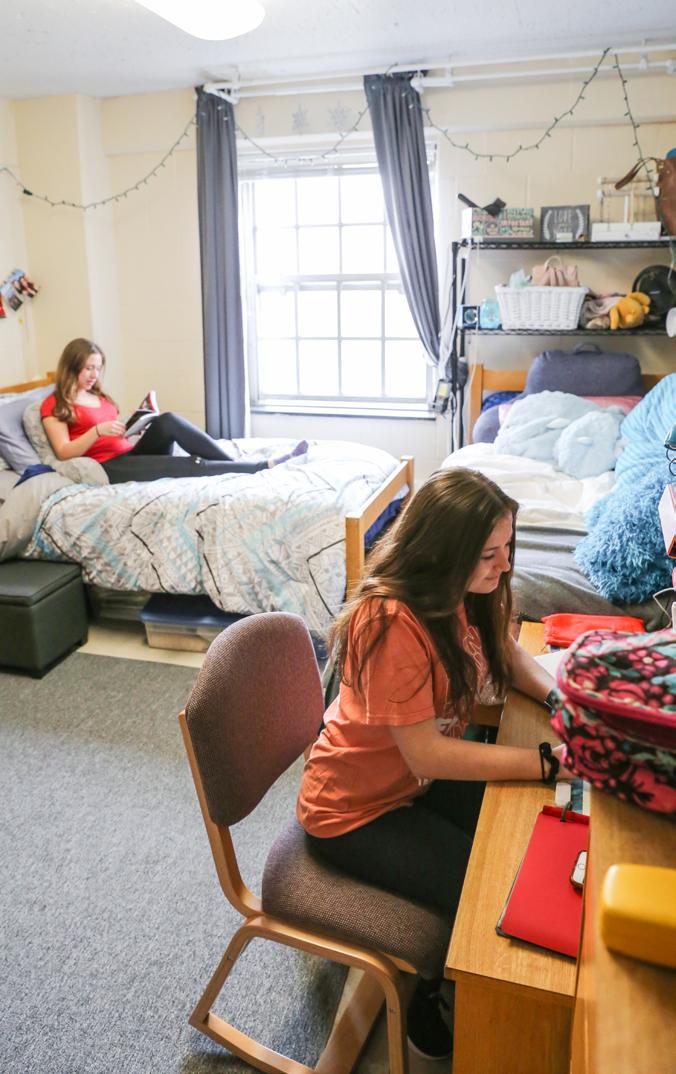
For fire safety and health reasons, cooking is prohibited in all student rooms. This is why students in the residence halls are required to participate in an approved dining plan.
Permissible appliances include Keurig dispensers and hot water pots which have enclosed heating elements and bear the UL seal. Hot water pots should not be used in student rooms, only in a designated cooking area inside floor lounges. Most residence halls have hallway kitchenettes or floor lounges that are equipped with microwave, stove, sink, disposal, instant hot water tap, and refrigerator (varies by building) that are adequate for cooking or cleaning utensils.
Small refrigerators are permitted in student rooms. They must meet these safety specifications:
• 3.6 cubic foot maximum
• 1.5 amp maximum
• 120 volts, 60 cycle AC
• Grounding type, 3-prong electric plug and 3-wire cord
• Underwriters Laboratory (UL) Seal of Approval
• Energy Star rated models preferred
Micro-mobility vehicles (e-scooters, e-bikes, and similar devices), as well as the removal and recharging of their batteries, are prohibited inside all campus buildings, including residence halls.
Each resident has a personal high-speed data line. The residence halls also have 100% wireless internet coverage. To learn more about connecting to the campus network visit the Division of Information Technology’s website.
All residence hall students have free access to XFINITY Stream. Visit the Xfinity on Campus webpage and use your University credentials to login and learn more.
Navigating campus just got easier! Download the UMD App, which is available for Apple and Android devices.
This app delivers access to popular services and resources and provides a custom view of your campus experience.
Each individual residing in the on-campus residence halls has primary responsibility for their own safety and security and the security of their belongings.
The University and Resident Life take many steps that contribute toward maintaining a safer and more secure environment. Staff, equipment, and information resources are provided to encourage behaviors that prevent dangerous situations and to assist if an emergency should occur. However, even with these many good faith efforts, it is impossible to predict individual actions or guarantee absolute control that will assure that no unwanted acts or situations ever occur. Get familiar with the many safety resources available and take proactive steps to keep yourself and your community safe.

SECURITY SERVICES AND POLICIES
• Full-service police department
• Walking escorts by uniformed police officers or student police aides
• Residence hall exterior doors are locked 24 hours a day
• Electronic card access system in all residence halls and a few South Hill apartments except the gardenstyle Leonardtown apartments
• Residents typically use their keys/access cards three times: to open the entrance door, to call the elevator, and to open their room door
• Shuttle-UM buses stop outside each residence hall community every 15–30 minutes 5:30 p.m.–2:30 a.m. every night
• N.I.T.E. Ride escorts by Shuttle-UM vans 5:30 p.m.–7:30 a.m. every night
• Outdoor Emergency phones
• Dusk to dawn patrols by police officers in marked cars, motorcycles, and bicycles
• Shuttle-UM bus drive-throughs of main roads and parking lots
• Security cameras
• Crime prevention programs
• Crime alerts and statistics available at the University of Maryland Police Department website.
Please review your family’s homeowner’s or apartment dweller’s policy or consider purchasing renter’s insurance to protect your personal belongings while you’re on campus. The University cannot reimburse you for any theft, loss, or damages to your belongings in the event of a flood, water leak, fire, etc.
ALL RESIDENTS ARE EXPECTED TO:
• Keep their room doors locked
• Avoid walking alone after dark; either walk with friends or utilize escorts/transit services. Use hightrafficked and well-lit areas when traveling after dark
• Not allow anyone they do not know into their residence hall
• Report suspicious persons or activity to Police
• Stay away from relatively isolated areas of the campus and use high-trafficed and well-lit areas when travelling after dark
• Make choices that prioritize safety, avoid situations that may compromise well-being or security
• Be responsible for their guests at all times. All visitors to the residence halls should call their host upon arrival and wait outside until their host can let them in and accompany them into the residence hall
SAFETY AND SECURITY RESOURCES AT THE UNIVERSITY INCLUDE:
Medical Emergency
Police Emergency*
Fire
Police Non-Emergency
Crime Reporting
Walking Escorts
Health Center
Behavioral Health Services
Sexual Assault Hotline
Key, Lock & Facility Problems
Evening Security Buses
Shuttle-UM Transit
301-405-3333 or 911
301-405-3333 or 911
301-405-3333 or 911
301-405-3555
301-405-3333 or 911
301-405-3555
301-314-8180
301-314-8106
301-314-2222
301-314-9675
301-314-NITE
301-314-2255
*Dial 301-405-3333 to reach University of Maryland Police directly
EMERGENCY
What you should do upon check-in:
• Read emergency/evacuation procedure posted in your room
• Know locations of exit stairwells and doors
• Plan more than one exit route
If you hear your building’s fire alarm:
• Immediately exit the building
• Always assume an emergency, never assume a false alarm
• Use stairs, not elevators
• Do not open door if knob is warm to the touch; call UMPD immediately at 301-405-3333 or dial 911
• Crawl on floor (where air is fresher) if you encounter smoke
Each residence hall room has a fire suppression sprinkler. DO NOT hang anything from or tamper with the sprinklers.
For resources about how to make an emergency preparedness plan, visit the Department of Resident Life’s Safety and Resources webpage.
Our campus has multiple ways of providing instant notifications to students, faculty, and staff of imminent dangerous conditions.
The campus is equipped with an Early Warning Siren and istested at noon on the first Wednesday of each month.
If you ever hear the sirens: Stay inside and seek information.
• If
• Police, fire, and ambulance services
• Quiet room in libraries
• Study rooms in residence halls
• No-fee laundry facilities (included in housing fees)
• Security escorts by uniformed police officers and student police aides
• Residence hall desk staff for information, room lockouts, getting immediate help with a problem, mail/package pick-up
• “Hotline” for residence hall repairs and service calls
• Professional staff (housing, counseling, mental health) for response to emergencies
• Maintenance response to plumbing, heating, or power emergencies
• Monitoring of outdoor areas, parking garages via security cameras
• Text messaging alerts, warning sirens
The Office of Rights and Responsibilities is a unit within the Department of Resident Life and administers rules and adjudicative processes that serve three primary goals:
(1) maintain the safety and necessary order for an academic residence community,
(2) determine accountability for prohibited behavior and,
(3) foster among students an understanding of their accountability as community members.
The office promotes the Department of Resident Life’s Community Living Principles by balancing the needs of individual students with the needs of the community, and strives to educate students about each individual’s obligation to help assure a safe, secure, and nurturing academic environment.
For more information please visit the Department of Resident Life’s Rights and Responsibilities webpage.
In order to keep our community healthy and free from vaccine preventable diseases, we require that all new students submit evidence of a number of immunizations. Required vaccines include:
• Two measles, mumps, and rubella (MMR) vaccine doses, or blood titer evidence of immunity
• One meningitis ACWY vaccine dose within 3 years of arrival at UMD for undergraduate students
• One tetanus, diphtheria, and pertussis (Tdap) vaccine dose within the last 10 years
• Completion of a tuberculosis risk screening questionnaire and additional testing depending on your responses to the screening questions.
The Immunization Record Form must be completed and uploaded prior to your arrival to campus. New students may submit your information online beginning June 1.
For more information call University Health Center at 301-314-8114 or visit the Health Center’s website
The University of Maryland is a smoke-free campus. Smoking in any form is not allowed within any residence hall room or space.
Smoking is only permitted in designated outdoor locations on campus at all times. Designated locations for smoking may be found on the Campus Web Map
Use of Electronic Nicotine Delivery systems (also known as vapes, juuls, e-cigarettes) within any residence hall space, or within 25 feet of any residence hall is not permitted.
Add the on-campus emergency phone number into your cell phone: UMPD 301-405-3333
Download the UMD Guardian Safety App. Using UMD Guardian, users can initiate a safety timer session, place a panic (emergency) call to UMPD, or text a tip to UMPD. The app is available for download through the Apple App Store and Google Play.
Login to your UMD Alerts profile to make sure your contact information is up to date.
For more safety tips visit the Department of Resident Life’s Safety Resources webpage.
Micro-mobility vehicles (e-scooters, e-bikes and other devices) are prohibited inside all campus buildings, including residence halls. Using, possessing, charging, and storing micro-mobility devices (including Lithium-ion batteries) is prohibited in the residence halls at all times. No exceptions. Failure to comply with these fire safety regulations may result in fines, impoundment, housing probation, removal from housing and other actions.If you live on campus, we strongly advise you NOT to bring e-scooters, e-bikes, or other micro mobility devices to campus due to limited outdoor storage, lack of charging infrastructure throughout campus, and safety risks associated with these devices.
Any micromobility devices on campus must be stored and secured outdoors in approved locations. Devices secured elsewhere are subject to fines and impoundment.
On-campus residents are encouraged and advised to use Veo, bicycles, walking, and/or the Shuttle-UM system for transit on and throughout the campus.
The legal drinking age in the State of Maryland—for beer, wine, and liquor—is 21. For students under the age of 21, it is a violation of residence hall rules to drink or possess alcoholic beverages.
For all students, regardless of age, it is a violation of residence hall rules to: possess or use alcoholic beverages in any common area of the residence halls, and possess, use, or distribute any illegal drug or drug paraphernalia.
Pursuant to the University of Maryland’s obligations under the federal Drug-Free Schools and Communities Act, cannabis in any form—including that which is legal under Maryland state law and prescribed medical cannabis (also known as medical marijuana)—is prohibited on campus, including in residence halls, in accordance with University and Department of Resident Life drug policies.
Use of alcohol by a minor or possession of drug paraphernalia normally results in a sanction of housing probation or warning; further violation can result in dismissal from residence halls. Possession, use, distribution, and/or knowingly allowing use or distribution in one’s room of any illegal drug normally results in dismissal from residence halls. Students are expected to report suspected drug activity to University Police at 911 or 301-405-3555.
We want all residents to thrive by living in the residence halls. Creating an inclusive community where all can belong requires each individual to actively commit to being good citizens, scholars, and leaders. Each and every member has a part in the success of our community.
In choosing to live in the residence halls you have accepted an opportunity and an obligation: the opportunity to enjoy and benefit from a healthy academic community, and the obligation to conduct yourself in ways that help other citizens to do the same.
We who live at Maryland do so with a set of living principles constantly in mind. These principles guide each citizen’s conduct and actions to promote the best of what the community has to offer. They also teach us what we can contribute to our future communities.
Each of us must have the sense that we are safe from danger and harm. The immediate physical safety of each and every citizen must be the first concern for all of us.
Each of us must feel that we have a rightful and recognized place in this community. This sense of belonging is reinforced when we act toward one another civilly, which affirms the dignity and respect that is due to each member of our community.
Living together as closely as we do requires communication and compromise on the conflicts that will likely occur. The varying ways in which we like to rest, study, or socialize, and the need to share bathrooms, lounges, and lobbies are among the demands of group living.
When we get involved in our community, we invest in it; we help it grow, flourish, and reach its potentials, and each of us gets a great return. Our involvement brings about activities and improvements.
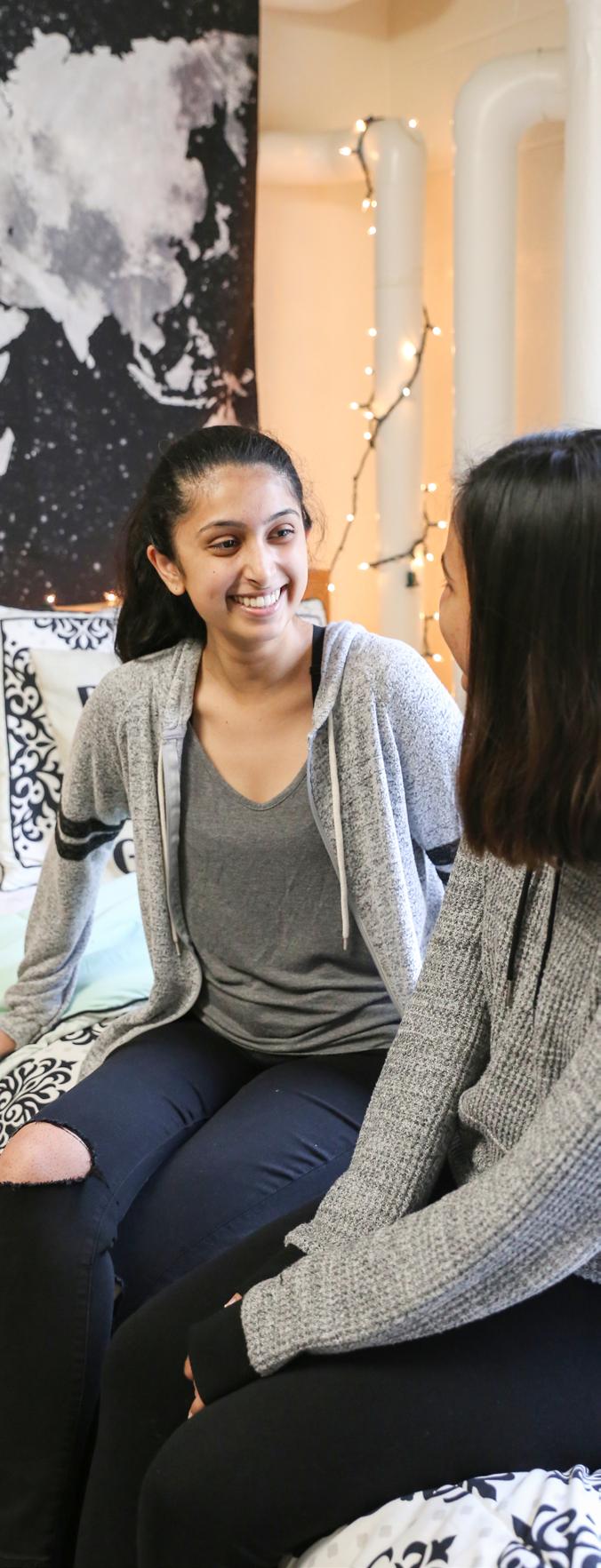
As students pursue their individual interests and activities within their residence halls, they will be expected to do so in a manner that does not prevent other residents from exercising this same basic privilege. Residents should remember two key words: courtesy and respect.
At the start of the year, residence hall staff assist residents in developing guidelines regarding living standards. Residents will be asked to participate in discussions which will result in the development of their Community Living Agreements on questions such as:
• How will we communicate with each other regarding visitors?
• What steps will we take to communicate and resolve a disagreement or conflict that arises?
• What time at night should we begin “quiet hours” so that we can sleep and study?
• How often will we clean our room? On a scheduled or as-needed basis?
• For what purposes should our lounge be used?
• How loud can activity be in the room before it becomes too loud?
Certain rules of conduct apply to all residence halls. Rules include prohibitions of disruptive behavior, vandalism, violation of drug and alcohol policies, harassment, and malicious pranks. Sanctions against such infractions are taken whenever individuals responsible for misconduct can be identified.
The Community Living Handbook outlines the residence hall rules. Floor meetings are also conducted to inform students of these rules.
We are committed to creating an inclusive, equitable, and just community for all residents and staff. The diversity of people, experiences, and approaches that exist in Resident Life are integral to our residential and departmental communities. We actively pursue ways to ensure that all people - particularly those who hold identities that have been historically oppressed and continue to be marginalized - are affirmed and respected through our actions, policies, practices, and programs.
We challenge our residents and staff to understand and accept both individual and collective responsibility for shaping a respectful and equitable community. Our community inspires learning and growth so that every member feels a sense of belonging and has a rightful place. This work requires an ongoing commitment to inclusion, equity, antiracism, and justice from all community members.
As a staff, we value intentionality, transparency, openness, empathy, self-awareness, and care. Our DEIJ Action Plan ensures a rightful place for all in our communities, addresses inequities, and reduces barriers to full participation. Our critical reflection and deliberate action creates a more inclusive, equitable, and just community.
Our DEIJ Grounding Principles in entirety can be found on the Department of Resident Life’s DEIJ Commitment webpage.
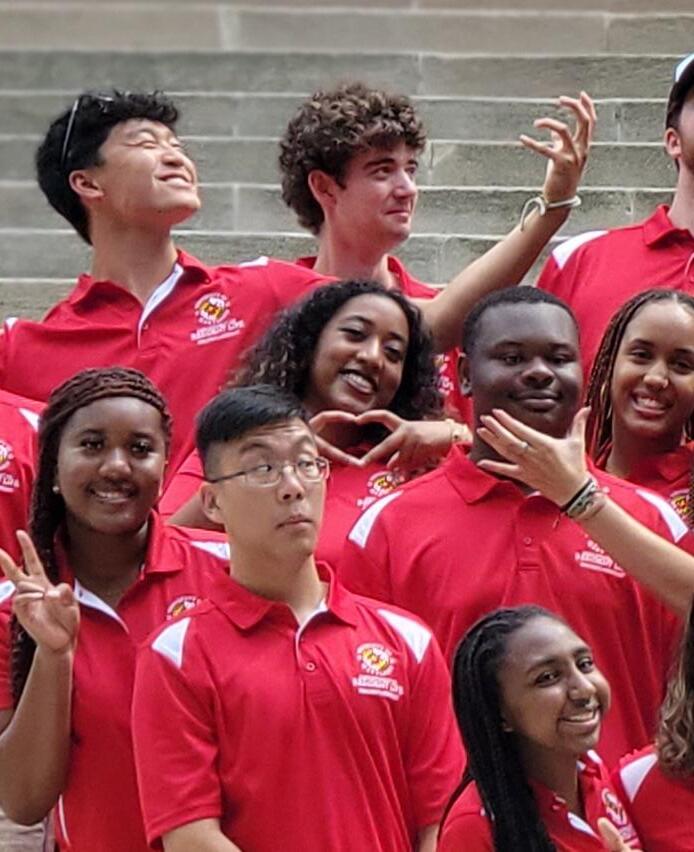
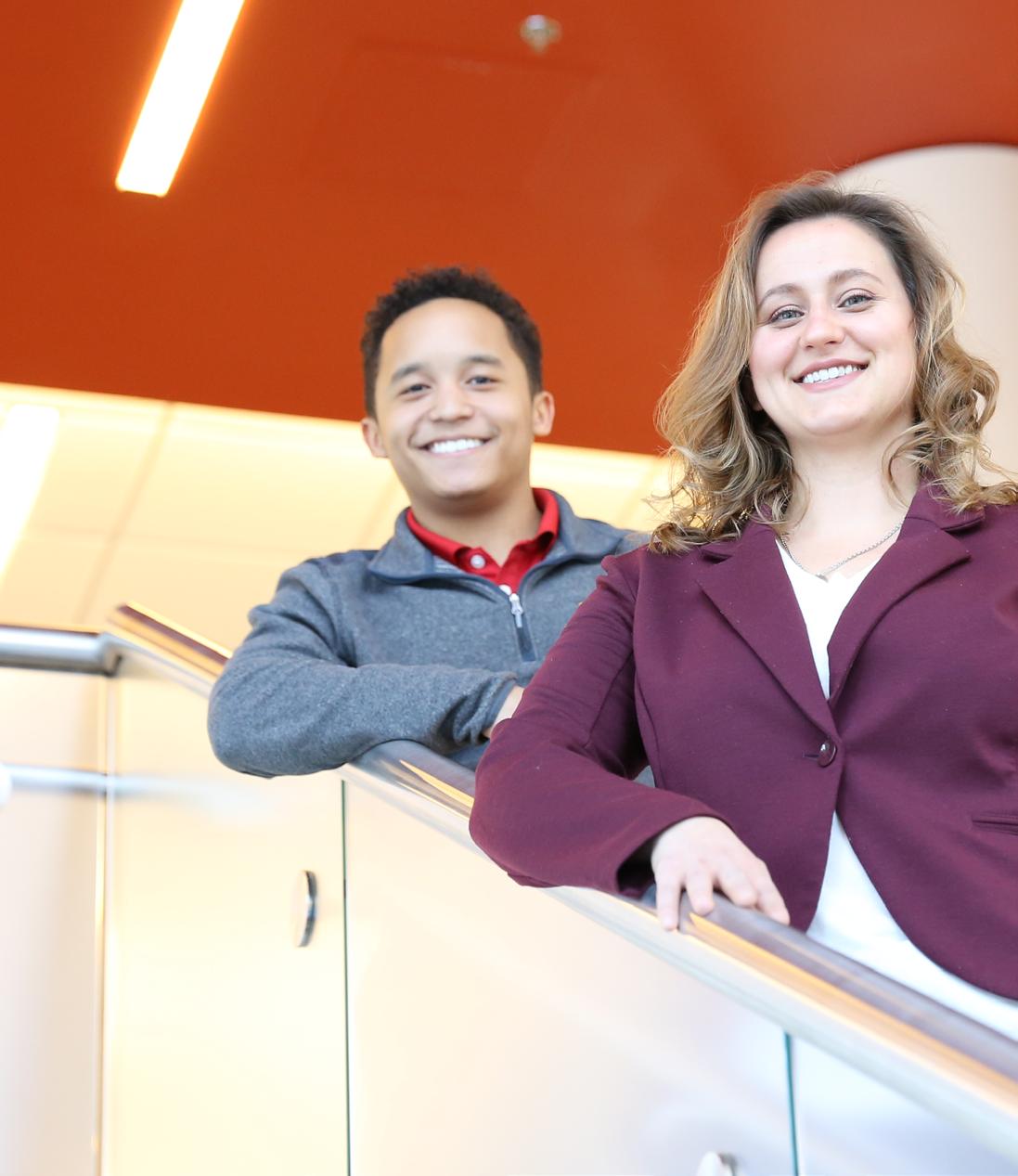
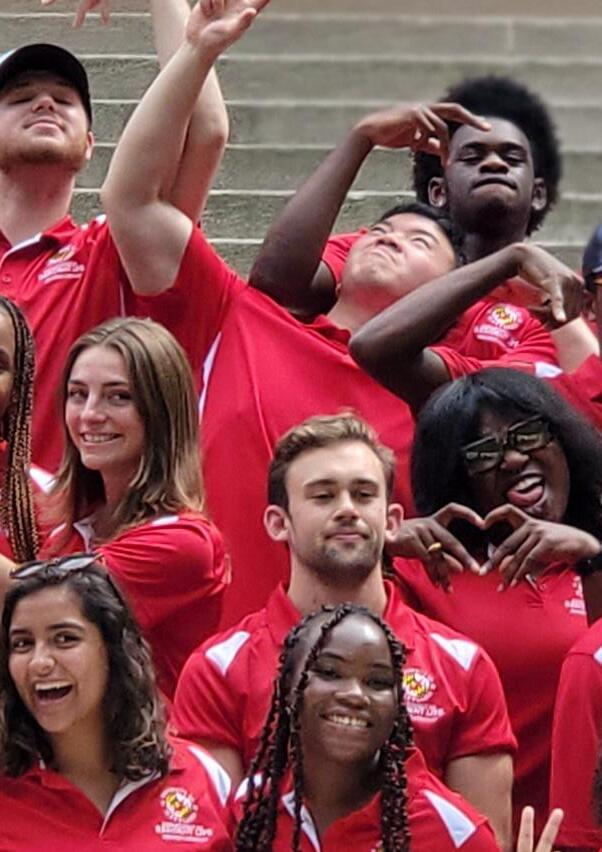
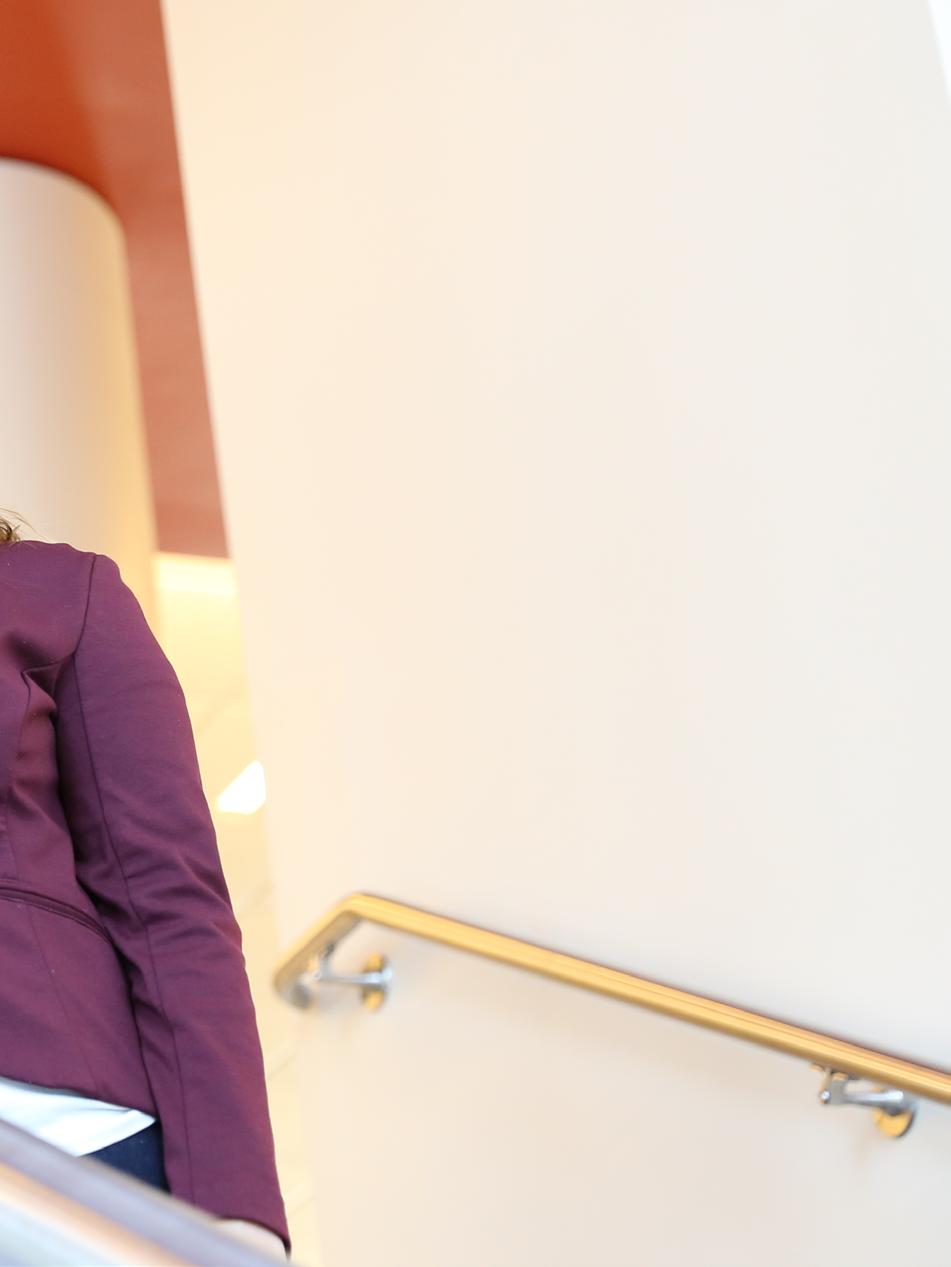
Resident Assistants (RAs) are ...
• Undergraduate student staff members who live in the residence halls with students
• First point of contact for student concerns
• Trained in referrals to University resources, leading events and activities for/by unit residents, mediating conflicts, confronting problems, and addressing potential violations of University policy
Community Assistants (CAs) are ...
• Undergraduate students who staff 24/7 residence hall community service desks
• Manage and oversee key and package distribution, and complete a number of administrative tasks
• Training for point of contact for many students, faculty, staff, and visitors for support, resources, and emergency assistance
• Hourly paid position
Resident Directors (RDs) are ...
• Full-time professional staff who live on campus
• Supervisors of RAs
• Responsible for approximately 500 students
• Trained and skilled in crisis assistance and emergency management; serve as part of multi-level on-call duty system
Community Directors (CDs) are ...
• Full-time staff who lead, manage, and oversee each of our residential communities.
• Supervise, train, and support the Resident Directors
• Have responsibility for oversight and evaluation of all Resident Life staff within each Community.
• Trained and skilled in crisis response, emergency management, conflict resolution; serve as part of a multi-level on-call system.
Resident Life Offices (M-F, 8:30 a.m.–4:30 p.m.)
North Campus Communities 301-226-4830
South Campus Communities 301-314-7484
Resident Life staff is available after hours via our 24-hour residence hall service desks and after-hours crisis response system.
To learn more about Res Life undergraduate student employment opportunities, please visit the Department of Resident Life’s Employment webpage
The Department of Resident Life utilizes a differentiated rate structure. This rate structure reflects fees based on both hall and room amenities offered and on the number of room occupants. Full fee information is available at the Department of Resident Life’s Rates and Fees webpage.
*These are proposed fees for 2025-2026. Housing and Dining fees are reviewed annually by the UMD Residence Hall Association (RHA). The University System of Maryland Board of Regents reviews and approves proposed fees during their Spring meetings.
Students living in a traditional residence hall, semi-suite, or suite (no private kitchen) are required to participate in a University-approved dining plan. Three optional resident plan upgrades offer additional value and oncampus purchasing power. The Anytime Dining Meal Plan begins for all students at 4:00 p.m. on Wednesday, August 27, 2025.
For additional details visit the Dining Service’s website.
The University of Maryland has detailed information about payment deadlines, options, and responsibilities concerning student accounts at the Student Financial Services and Cashiering website.
Residence hall fees will be added to student accounts. Please note: paper bills will NOT be sent to students or their families. Registered students will receive an email notification that their monthly bill statement is ready for viewing.
The Terp Payment Plan is a service available for the Fall and Spring semesters and allows those who enroll to pay in monthly installments for the semester. With the Terp Payment Plan, you can arrange to have your monthly payments debited directly from your checking or savings account. The enrollment fee is $45 (nonrefundable) per semester plan.
For more information, visit the Terp Payment Plan webpage.
DENTON COMMUNITY
Denton Hall
Easton Hall
Elkton Hall
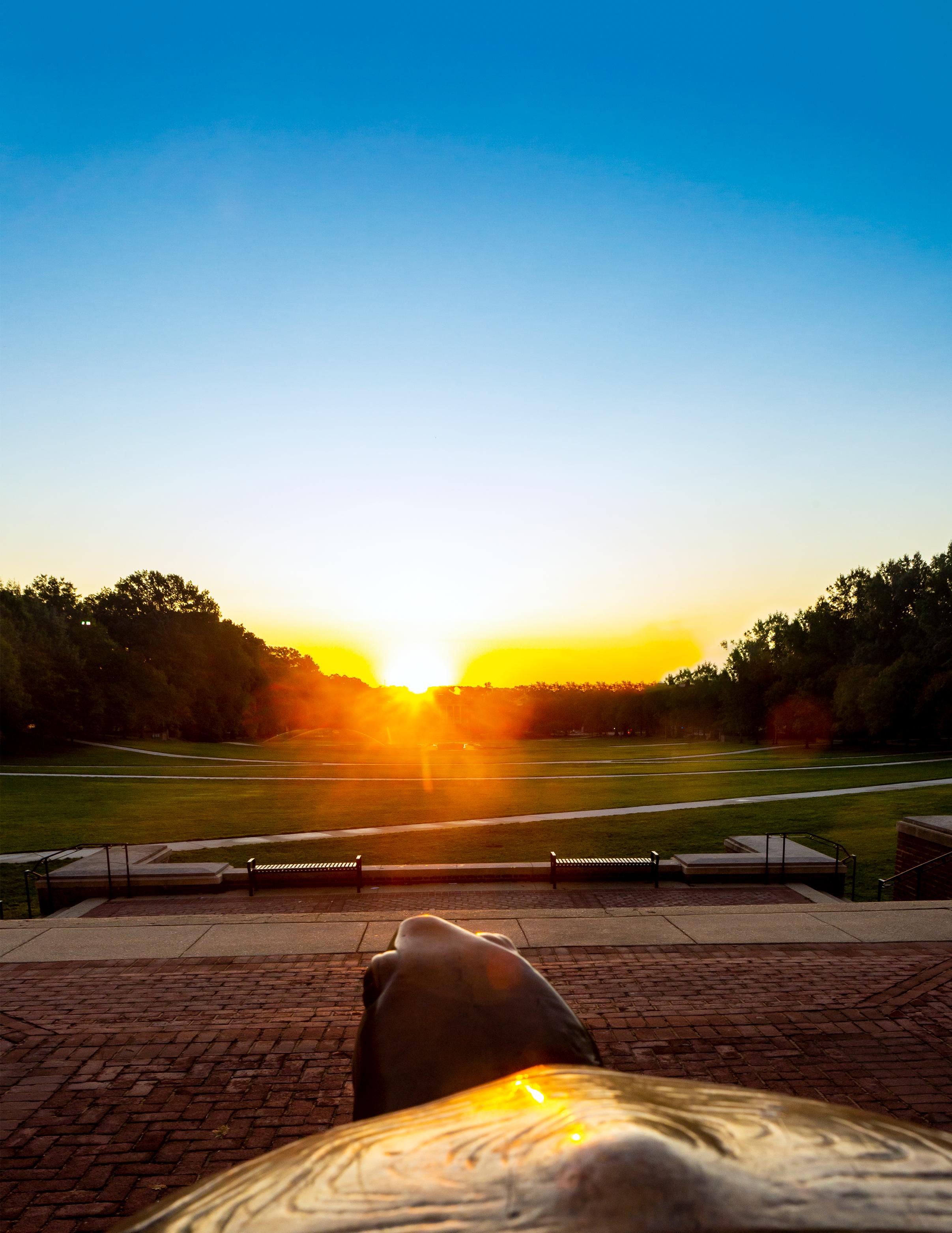
ELLICOTT COMMUNITY
Ellicott Hall
Hagerstown Hall
La Plata Hall
CAMBRIDGE COMMUNITY
Bel Air Hall
Cambridge Hall
Centreville Hall
Chestertown Hall
Cumberland Hall
HERITAGE & OAKLAND COMMUNITY
Pyon-Chen Hall
Johnson-Whittle Hall
Oakland Hall
NORTH HILL COMMUNITY
Anne Arundel Hall
Caroline Hall
Carroll Hall
Dorchester Hall
Prince Frederick Hall
Queen Anne’s Hall
Somerset Hall
St. Mary’s Hall
Wicomico Hall
Worcester Hall
SOUTH HILL COMMUNITY
Allegany Hall
Baltimore Hall
Calvert Hall
Cecil Hall
Charles Hall
Frederick Hall
Garrett Hall
Harford Hall
Howard Hall
Kent Hall
Montgomery Hall
Prince George’s Hall
Talbot Hall
Washington Hall
Sheets (twin size or extra long for Johnson-Whittle and Pyon-Chen halls)
Blanket, bedspread, pillows, pillowcases
Mattress cover
Bed risers (without power outlet, USB ports)
Under the bed storage boxes (10” clearance)
Laptop or personal computer and 15- to 20-foot ethernet cable (wireless in all halls and throughout the campus)
Printer for laptop or PC
Alarm Clock
Fan
HEALTH AND HYGIENE
Soap, toiletries, shower tote, towels, washcloths
Cleaning supplies
Laundry bag, detergent, clothes hangers
First aid kit
Lockbox for storing prescription medication
Desk/floor lamp (consider CFL or LED bulbs; no halogen bulbs, no gooseneck lamps or plastic shades)
Non-damaging wall fasteners and blue painters tape for hanging items in your room
UL/CSA approved power outlet strip with integrated circuit breaker (consider “smart power strip” to save energy)
Reusable water bottle and shopping bag(s)
Flashlight, extra batteries
Personal Emergency Kit. Visit the Office of Emergency Management and Business Continuity website for more information.
Get more information about Move-In Day!
Carpet remnant or rug (the recommended size is 6’x9’)
Curtain (if desired). Windows have installed blinds
Two waste bins: one for trash (with liners) and one for recycling
A smart TV or streaming device that runs the Xfinityoncampus app
Small appliances (UL/CSA approved, ENERGY STAR rated models preferred):
{ Small refrigerator (3.6 cubic foot maximum)
{ MicroFridge rental
{ Air cleaner or air ionizer with UL Seal
{ Window fan(s)
{ Keurig hot drink dispensers (consider purchasing a reusable K-cup filter)
We encourage you to “pack light” for your first trip to your room, and leave your largest and least essential items at home until you and your roommates are settled in to your room. Storage will be your closet space and under your bed.
Pack using containers you already have. Laundry bags, storage totes, reusable grocery bags, and gym duffel bags are all great choices. Bring a moving cart, hand truck, or wagon to help get items to your room.
Micro-mobility devices (e-scooters, e-bikes, e-skateboards, hoverboards, etc. and their lithiumion batteries. Fire safety guidelines prohibit these devices in all campus buildings.
Electric skillets, slow cookers, hotplates, toasters, and toaster ovens or appliances with open or exposed heating elements or coils
Air conditioners (both window and portable units), evaporative coolers, heating/cooling pads
Extension cords
Candles, incense, scented burners
Alcohol (if under 21)
Cannabis in any form and other illegal drugs, drug paraphernalia, and any smoking devices
Personal microwaves. (The MicroFridge with SmokeSensor product is the only approved microwave permitted in rooms. Rental is available via approved vendor.
There are two vendors who have exclusive permission from the University of Maryland to advertise their products and services to students living in the residence halls and to do so with the assistance of the Departments of Resident Life and Residential Facilities. Information about Bed Lofts and Refrigerators will be mailed to residents’ home addresses in late July.
Students can rent a bed loft for their residence hall room from Bedloft.com. This product is a convenient, affordable way to maximize space and comfort. Bunking the beds are also an option in most residence halls.
We partner with GoBreez.com to provide students with a simple, reliable solution for in-room fridge and microwave combo rentals, delivered straight to your room before you arrive. No room information is needed to order. Reserve today for priority pricing.
Roommate Finder
June 16–25
Housing Assignments Release July 17
New-to-Housing Student Move-In August 27–28
Returning Student Move-In
Fall Welcome
Residence Halls close at 7:00 p.m. for Thanksgiving
August 29–September 1
August 27–September 1
November 25
Residence Halls reopen at 10:00 a.m. November 30
Residence Halls close at 7:00 p.m. for Winter Break
December 20
